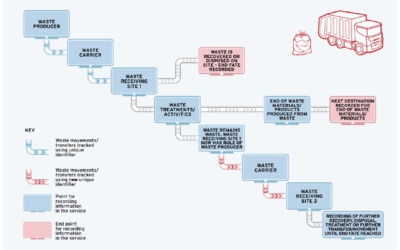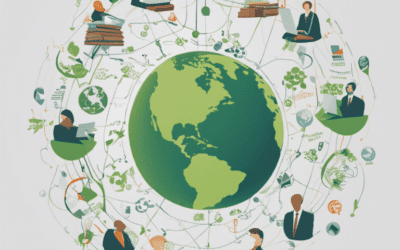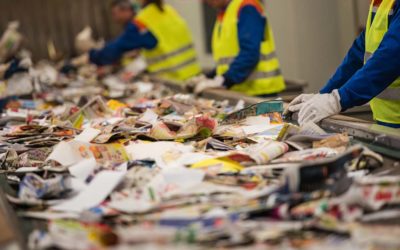Exploring EU Waste and Recycling Legislation: The EU has a wide-ranging environmental policy. This is summed up in the European Green Deal, a set of goals and ways of working that are designed to ‘transform the EU into a modern, resource-efficient and competitive economy’.
The European Green Deal aims to eliminate net emissions of greenhouse gasses by 2050, and includes policies to make the Union’s various related policies able to contribute to reducing greenhouse gas emissions by more than half by 2030. The deal aims to make Europe the first climate-neutral continent.
What’s the problem?
The 27 countries that make up the EU, like all other countries around the world, make a contribution to greenhouse gas emissions and the climate emergency. Those countries are actively working to improve their impact over the coming decades, working towards keeping global warming to as close to 1.5 degrees as possible and protecting their people and their economies.
According to the EU, five tonnes of waste is produced each year by the average European, but only 38% of the bloc’s waste is recycled – with more than 60% still going to landfill. So there is much work to do across member countries, and part of this is covered by the EU’s waste management policies. These policies are designed to promote a circular economy within the bloc, limiting landfill use, improving general waste management and encouraging better approaches to recycling and reuse.
At the moment, the EU’s waste management and recycling policies cover:
- Batteries and accumulators
- Biodegradable waste
- Construction and demolition waste
- End-of-life vehicles
- Landfill waste
- Mining waste
- Packaging waste
- PCBs and PCTs
- Hazardous substances in electrical and electronic equipment
- Sewage sludge
- Ships
- Waste containing persistent organic pollutants
- Waste oil
- Waste shipments
- Waste from electrical and electronic equipment
These are covered by more than 50 pieces of legislation, including any areas where the EU is bound by international law.
Boosting reuse and recycling
Of course, for waste management and recycling companies, the detail is in how the EU Waste and Recycling Legislation promotes the circular economy. So preventing waste from going to landfill by reuse or recycling is important. Promoting the resale of useful materials while also encouraging producers to be more ‘waste-aware’, is a key part of the EU’s approach.
In November 2022, the EU announced its approach to EU-wide rules on packaging. The announcement included the following statistics and trends:
- Each EU citizen generates around 180kg of packaging waste per year.
- Packaging is one of the biggest sources of virgin material use in the EU – 40% of all plastics and 50% of all the paper used is for packaging.
- There is likely to be a 46% increase in virgin plastic used for packaging in the EU by 2030 unless action is taken.
- The EU says that its rules will allow the packaging industry to be climate neutral by 2050.
It’s also clear that consumers are often confused by labelling and the terminology used for various packaging types. This adversely affects proper recycling and can lead to recyclable packaging ending up in landfill.
There are three main elements to this legislation:
- To prevent the generation of new packaging waste by restricting unnecessary packaging and promoting reusable and refillable packaging solutions.
- To boost high quality recycling to make all packaging produced in the EU recyclable by 2030.
- Reduce the need for primary materials and build a thriving secondary market for raw materials.
What does all this mean for waste and recycling companies operating in the EU, or supplying into the EU? It means you will need to demonstrate that you have the ability to collect, separate and reuse, recycle or repurpose waste. It may also mean that the businesses you collect from will may have to prove that their suppliers meet the necessary requirements.
To do this, and remain competitive in your industry, you need to have complete visibility across your business – everything from order management, route planning to the weighbridge and site management. That means you may need to review and evaluate your existing software platforms to see if they allow the data collection and reporting you need. If not, perhaps it’s time to investigate Waste & Recycling One – a dedicated solution for the global waste industry that can help you to be more efficient, more cost-effective and more compliant.
To find out more, contact our team today or visit our showcase below.






